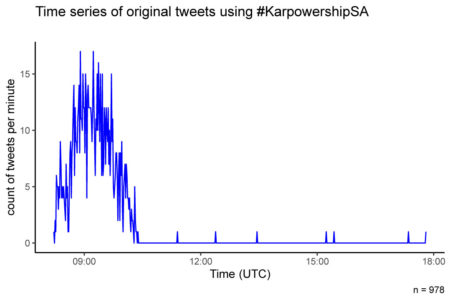
The delay in the switch-over to digital terrestrial television (DTT) is symptomatic of the government’s ineffective implementation of policy, says an analyst.
Department of communications programme manager Solly Mokoetle told a joint meeting of parliamentary committees last month that orders are imminent for set-top boxes (STBs).
STBs are the devices required for decoding digital signals for analogue television sets.
“The programme manager of the DTT programme told a joint meeting of three parliamentary committees on 11 August that the orders for the STBs would be placed with suppliers ‘this month’,” said Andrew Fraser, former marketing head of Sony Mobile and TV show producer.
“True to form, that hasn’t happened, and the longer it is delayed, the longer until the actual switch-over,” Fraser said.
Department of communications representatives were unwilling to comment about whether orders have started yet.
The roll-out of STBs is a key part of government’s policy to migrate to DTT — a process that would free up the 800MHz spectrum for faster mobile broadband in SA.
Despite policy dating back to 2008, SA is yet to complete the switch-over, and the country missed the international Telecommunication Union deadline (ITU) of June 2015.
“Any further delay is really unforgivable. Government has indicated that the process should be completed within two years. That seems unlikely. The longer this process takes, the longer it will be before the 800MHz spectrum is available for other uses,” Fraser said.
Fraser also said satellite technology could be considered an alternative.
“The process has gone on for so long that it is debatable whether digital terrestrial television is even the best solution. The increase in available satellite bandwidth means that it would probably cheaper to roll out a DVB-S2 (digital satellite) solution than the DTT solution.
“The free-to-air OVHD platform set-top box and dish are currently selling for less than the estimates of the cost of the locally produced DVB-T2 STBs with antenna,” he said.
More than 20 South African companies are set to benefit from a STB tender estimated to be worth R4,3bn, but Fraser warned that the attempt to use DTT as a boost to grow the local manufacturing industry could backfire.
“The fact is that the local industry will not be competitive with the Chinese, and the programme likely will just be a taxpayer subsidy to an uncompetitive industry. There are 26 different STB manufacturers identified, meaning that each will get a government order for around 200 thousand units.”
Fraser argued that the most effective way for government to recoup capital expenditure is to auction off mobile broadband spectrum.
“The real return on investment on the process is the digital dividend of spectrum in the 800MHz and 700MHz bands. Government may auction off licences in this spectrum, which may help to recover some of the wasted money on the DTT process,” he said. — Fin24




